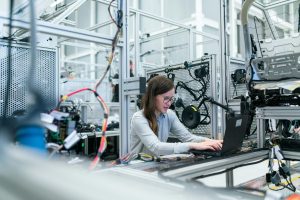Parent and Teacher Roles in Hybrid Education
Schools around the world have been forced to adapt to a new way of education due to the global pandemic – hybrid learning. This approach combines remote, online learning and in-person, traditional teaching, giving students the opportunity to learn both in the comfort of their homes and within the school premises. With this shift, the roles of parents and teachers have also evolved, creating a collaborative environment for students’ education. In this article, we will discuss the important roles that parents and teachers play in hybrid education and how their partnership benefits students.
The Teacher’s Role in Hybrid Education
Teachers play a crucial role in the success of hybrid education. With this new approach, teachers are expected to be experts in utilizing technology to facilitate remote learning and creating a hybrid classroom that caters to both in-person and online students. They are also responsible for planning and delivering engaging lessons that cater to all types of learners.
Designing Lessons for Hybrid Learning
One of the main challenges teachers face in hybrid education is designing lessons that are suitable for both in-person and online students. The key is to strike a balance between utilizing technology and traditional teaching methods. Teachers must ensure that online students can access and interact with the same materials and activities as in-person students. They must also provide clear instructions and guidelines for all students to follow, as well as being available for support during and after class hours.
Utilizing Technology
In hybrid education, technology plays a vital role in connecting teachers and students. As such, teachers must be proficient in using various online learning platforms, such as Google Classroom or Zoom, to conduct virtual classes, share resources, and communicate with students and parents. They must also be well-versed in creating and managing online assessments and activities to ensure that all students are assessed fairly.
Creating a Positive Learning Environment
Teachers are not only responsible for the academic progress of their students; they also play a crucial role in their social and emotional development. In hybrid education, teachers must work on creating a positive and inclusive learning environment for all students, whether they are learning in-person or online. This includes promoting effective communication, fostering a sense of community, and providing emotional support to students who may be struggling with the new learning model.
The Parent’s Role in Hybrid Education
Parents have always been involved in their child’s education, but with hybrid learning, their role has become even more significant. They are now required to be more actively involved in their child’s learning and work together with teachers to ensure their child’s success.
Providing Support at Home
One of the major advantages of hybrid education is that students have the opportunity to learn from home. This shift in the learning environment means that parents must provide the necessary support and resources for their child’s education. This includes creating a conducive space for learning, ensuring that their child has access to required materials, and monitoring their child’s progress.
Communicating with Teachers
In hybrid education, communication between parents and teachers is crucial. Parents must regularly communicate with their child’s teacher to stay updated on their academic progress and address any issues that may arise. They must also provide feedback and suggestions to help improve the learning experience for their child and other students.
Encouraging Self-Motivation and Time Management
With hybrid learning, students must learn to manage their time efficiently as they juggle between online and in-person classes. Parents play a crucial role in fostering self-motivation and time management skills in their child. They must encourage them to stick to a schedule, complete assignments on time, and stay on track with their learning.
The Benefits of a Collaborative Effort
The partnership between parents and teachers in hybrid education has multiple benefits for students. With this collaboration, students receive support and guidance from both ends, helping them succeed academically and emotionally. Teachers can also gain a better understanding of their students’ learning needs through the involvement of parents, enabling them to adjust their teaching methods accordingly.
In conclusion, hybrid education requires a collaborative effort between parents and teachers to ensure the success of students. As we continue to navigate this new way of learning, it is essential to recognize and appreciate the roles that parents and teachers play in shaping our children’s education.







